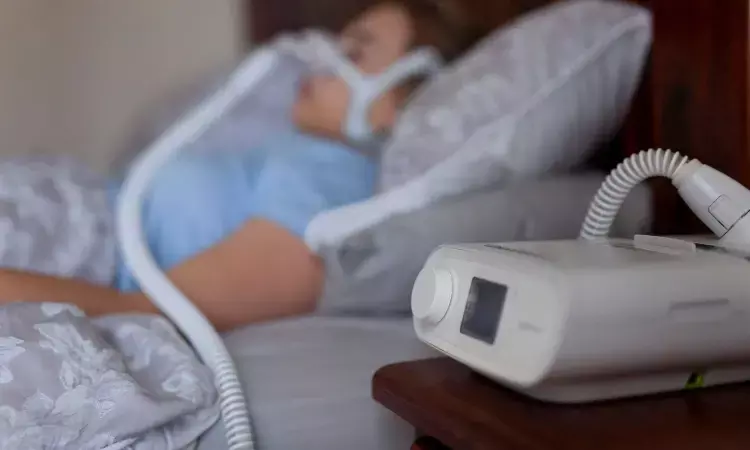- Home
- Medical news & Guidelines
- Anesthesiology
- Cardiology and CTVS
- Critical Care
- Dentistry
- Dermatology
- Diabetes and Endocrinology
- ENT
- Gastroenterology
- Medicine
- Nephrology
- Neurology
- Obstretics-Gynaecology
- Oncology
- Ophthalmology
- Orthopaedics
- Pediatrics-Neonatology
- Psychiatry
- Pulmonology
- Radiology
- Surgery
- Urology
- Laboratory Medicine
- Diet
- Nursing
- Paramedical
- Physiotherapy
- Health news
- Fact Check
- Bone Health Fact Check
- Brain Health Fact Check
- Cancer Related Fact Check
- Child Care Fact Check
- Dental and oral health fact check
- Diabetes and metabolic health fact check
- Diet and Nutrition Fact Check
- Eye and ENT Care Fact Check
- Fitness fact check
- Gut health fact check
- Heart health fact check
- Kidney health fact check
- Medical education fact check
- Men's health fact check
- Respiratory fact check
- Skin and hair care fact check
- Vaccine and Immunization fact check
- Women's health fact check
- AYUSH
- State News
- Andaman and Nicobar Islands
- Andhra Pradesh
- Arunachal Pradesh
- Assam
- Bihar
- Chandigarh
- Chattisgarh
- Dadra and Nagar Haveli
- Daman and Diu
- Delhi
- Goa
- Gujarat
- Haryana
- Himachal Pradesh
- Jammu & Kashmir
- Jharkhand
- Karnataka
- Kerala
- Ladakh
- Lakshadweep
- Madhya Pradesh
- Maharashtra
- Manipur
- Meghalaya
- Mizoram
- Nagaland
- Odisha
- Puducherry
- Punjab
- Rajasthan
- Sikkim
- Tamil Nadu
- Telangana
- Tripura
- Uttar Pradesh
- Uttrakhand
- West Bengal
- Medical Education
- Industry
CPAP Treatment Lowers Gestational Hypertension and Preeclampsia risk in Pregnant Women with OSA: JAMA

Taiwan: A recent meta-analysis, published in JAMA Network Open, suggests that continuous positive airway pressure (CPAP) treatment for pregnant women with obstructive sleep apnea (OSA) could potentially lower the risk of adverse gestational hypertensive outcomes.
"In the systematic review and meta-analysis of six studies involving 809 pregnant women with OSA, the combined results revealed a significant reduction in the risk of gestational hypertension by 35% and preeclampsia by 30%," the researchers reported.
Pregnancy can either trigger or worsen obstructive sleep apnea and elevate the risk of gestational complications. Continuous positive airway pressure is the primary and standard treatment for OSA and is considered the most practical option during pregnancy. However, the relationship between CPAP therapy and the reduction of gestational complications in pregnant women with OSA remains uncertain. To fill this knowledge gap, Yi-Chieh Lee, New Taipei Municipal Tucheng Hospital, New Taipei City, Taiwan, aimed to investigate the association between CPAP therapy in pregnant women with OSA and the reduction of adverse hypertensive outcomes during gestation.
Keyword searches were conducted across PubMed, Embase, and the Cochrane Database of Systematic Reviews and Clinical Trials from inception to November 5, 2023. Studies were selected based on their reporting of the impact of CPAP use on reducing the risks of hypertension and preeclampsia in pregnant women with obstructive sleep apnea (OSA).
Two authors independently extracted data following the Preferred Reporting Items for Systematic Reviews and Meta-Analyses (PRISMA) guidelines. Meta-analyses using a random-effects model were performed, and risk ratios (RRs) were reported. The analysis also included subgroup assessments, meta-regression based on age and body mass index (BMI), and evaluation of publication bias.
The primary outcome measured was the risk ratio of gestational hypertension and preeclampsia between pregnant women with OSA who received CPAP treatment and those who did not.
The researchers reported the following findings:
- Six original studies with 809 participants (mean age, 31.4 years; mean BMI, 34.0) were identified and systematically reviewed for meta-analysis.
- The pooled results showed significant differences between the intervention (CPAP use) and the control (non-CPAP use) groups in reducing the risk of gestational hypertension (RR, 0.65) and preeclampsia (RR, 0.70).
- Meta-regression revealed that patients’ age (coefficient, −0.0190) and BMI (coefficient, −0.0042) were not correlated with a reduction of risk of hypertension and preeclampsia.
The findings suggest that pregnant women may develop or have worsened obstructive sleep apnea, potentially increasing the risk of gestational complications.
"The meta-analysis found that CPAP treatment significantly reduced the risk of gestational hypertension and preeclampsia in pregnant women with OSA. Future research should focus on evaluating treatment adherence and determining the optimal timing and duration for CPAP use," the researchers concluded.
Reference:
Lee Y, Chang Y, Tseng L, et al. Continuous Positive Airway Pressure Treatment and Hypertensive Adverse Outcomes in Pregnancy: A Systematic Review and Meta-Analysis. JAMA Netw Open. 2024;7(8):e2427557. doi:10.1001/jamanetworkopen.2024.27557
Dr Kamal Kant Kohli-MBBS, DTCD- a chest specialist with more than 30 years of practice and a flair for writing clinical articles, Dr Kamal Kant Kohli joined Medical Dialogues as a Chief Editor of Medical News. Besides writing articles, as an editor, he proofreads and verifies all the medical content published on Medical Dialogues including those coming from journals, studies,medical conferences,guidelines etc. Email: drkohli@medicaldialogues.in. Contact no. 011-43720751


